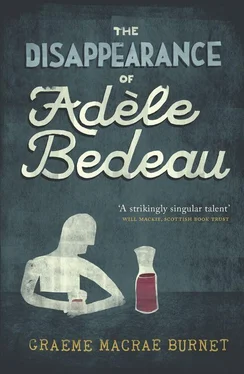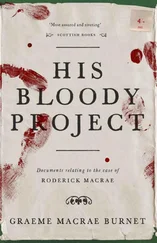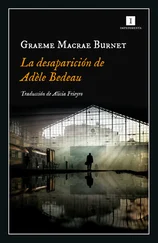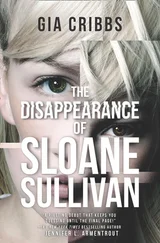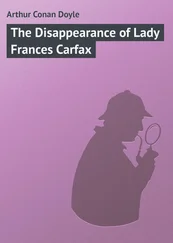‘You’re quite a regular here, aren’t you?’ said Gorski.
Manfred shrugged. It wasn’t a crime, was it? ‘I suppose you could say that.’
‘A creature of habit?’
Manfred stared at Gorski, not sure what expression to adopt. Was he going to bring up the fact that on the day Adèle had last been seen, Manfred had, in a complete reversal of his normal routine, ordered the choucroute instead of the pot-au-feu and had a second glass of wine? Perhaps he had been told of the little compliment he had paid Adèle during the card game. Taken together, these actions could easily form a picture of a character who, around the time of the waitress’s disappearance, had been behaving strangely. Why else would the detective have mentioned that he had been described in this way? Manfred felt his cheeks begin to colour.
‘I don’t know if I’d say that,’ he said.
‘Well, everyone I’ve spoken to,’ he made a vague gesture with his hand, ‘has described you in the same way, as a creature of habit.’
Manfred could not help glancing around the room. He intensely disliked the idea that Gorski had been asking about him, asking everyone about him. He wondered what else they had said.
‘Is there something wrong with that?’ he said.
Gorski pursed his lips and shook his head slowly. ‘Not at all.’ He leaned forward as if something had just occurred to him. ‘Let me ask you one question: did you notice anything unusual in the restaurant on Wednesday night?’
Manfred gave this some thought, or at least attempted to give the impression that he was giving it some thought. He decided that this would be a good time to take a mouthful of food and did so. When he had swallowed, he shook his head.
‘Nothing I can think of,’ he said.
Gorski looked a little disappointed.
‘Really?’ he said. ‘It seems to me that in a place like this,’ he made a gesture with his hand to indicate that he meant the restaurant, ‘not a great deal happens. One night is pretty much like any other. Accordingly, when anything out of the ordinary does occur, no matter how banal it might seem to an outsider, it does not go unnoticed by the regulars of the establishment.’
Manfred found Gorski’s manner of expressing himself quite irritating. He took the last sip of his wine. He would have liked to order a second glass, but after having done so the previous day, this would then be taken as a new habit and he would then be obliged to take two glasses of wine at lunch every day.
‘I’ve asked everyone the same question and received the same response. On the night in question Adèle had asked M. Pasteur if she could leave a little early. Before she left she changed her clothes and put on some make-up.’
‘You could hardly expect me to notice something as trivial as that,’ said Manfred.
‘Lemerre, Petit and Cloutier, whom I questioned separately, all noticed it and mentioned it unprompted,’ said Gorski.
‘Perhaps only one of them noticed and drew it to the attention of the others.’ Manfred felt this was a rather clever remark. Gorski tipped his head as if to acknowledge that this was a possibility. Manfred felt that he had won a small victory.
‘They sit by the door. They’re hardly likely to fail to notice a provocatively dressed woman,’ he added.
‘I didn’t say that Adèle was provocatively dressed. I merely said that she had changed her clothes.’
Manfred stalled. He would do better to keep his mouth shut.
Gorski allowed his previous remark to hang in the air for a few moments.
‘You’re right, of course,’ he continued. ‘From their vantage point, they could hardly have failed to notice that Adèle had changed. But you, I think I am correct in saying, were standing at the counter adjacent to the hatch from which Adèle emerged. Following your own logic it seems even more unlikely that you would not have noticed this transformation.’
‘Well, I didn’t,’ said Manfred.
Gorski clasped his hands in front of his face and tapped his forefingers together. Manfred had the impression that his ordeal was almost over.
‘You left the restaurant very shortly after Adèle, the precise time is unimportant.’ He adopted a puzzled tone, as if he was merely thinking out loud. ‘Did you see in which direction she walked?’
‘As I said before, I didn’t see her.’
‘And as you walked home did you see any young men, who might be waiting for…’ he picked his word carefully, ‘for a tryst?’
‘No.’ He was allowing his irritation to show.
‘And if I were to ask you to accompany me to the station and sign a statement to that effect, that is what you would say?’
‘Yes,’ said Manfred. His course had been set since the first time he had spoken to Gorski. He could hardly change tack now.
‘Very well.’ Gorski slid his chair back noisily. ‘My apologies for interrupting your lunch.’
Manfred’s wine glass was empty, but he dared not order another. He did not wish to appear as if his encounter with Gorski had disconcerted him. Pasteur continued to polish glasses behind the bar. He did not look in Manfred’s direction. Marie had her hand on the shoulder of the new waitress and was directing her to clear a recently vacated table.
GORSKI REGRETTED BRINGING HIS RAINCOAT. It was a warm, sunny day with no prospect of rain. He paused in the doorway of the Restaurant de la Cloche and lit a cigarette, his coat draped over the crook of his left arm. He walked along Rue de Hunigue until he reached the intersection. The police station was located a few minutes’ walk along Rue de Mulhouse, but Gorski had no desire to return there. Instead he crossed the street and continued along Avenue Charles de Gaulle. Most of the shops were closed for lunch and the streets were quiet. Gorski liked this part of the day. It was as if the town paused to draw breath for a moment, not that the pace of life in Saint-Louis demanded such a lull. Even so, Gorski strode along purposefully, as if to give the appearance that he was on his way to an important appointment.
He turned into a narrow side street where, a little further on, there was an inconspicuous bar called Le Pot. The name of the bar was painted in brown Germanic lettering above the door. A dark red Bar/Tabac sign was fixed to the wall with a rusting metal bracket. At night the sign was lit up, but during the day it would be quite possible to pass along Rue des Vosges without noticing there was a bar there at all. There were no windows save for two narrow oblongs of glass above eye level, which were for the purposes of ventilation only. The door was glass, but it was so plastered with posters advertising lottery tickets and various brands of cigarettes that it was impossible to see inside. The proprietor was aware that his bar was not particularly inviting, but the fact that, once inside, one could not be seen from the street, constituted a large part of its appeal.
Inside, the bar consisted of one small square room. The walls were painted with a dark mustard wash and decorated with faded prints depicting scenes from Old Alsace. Around two walls was a maroon banquette, the vinyl of which was cracked and worn. In one or two places, foam stuffing spilled out. In front of the banquette, five metal tables were bolted to the floor. In addition, four wooden tables were arranged in the centre of the room.
Gorski took a seat on the banquette and indicated to the proprietor with a little mime that he would take a pression . The bar occupied the wall opposite the door. On the right of this was the tabac area from which cigarettes, smoking paraphernalia and lottery tickets were sold. These two areas of the bar were separated by the wooden flap through which the proprietor accessed the bar. There were three beer taps, offering biere d’Alsace , a German weißbier and a dark ale. On the left of the bar was a stainless steel water bath, used to heat the hotdogs which were the only food served in Le Pot. The boiler was never turned off and it was from this that the bar got its characteristic aroma. The proprietor kept the lighting low, so that it was usually hard to tell whether it was day or night. In the late afternoon, however, if the sun was shining, two shafts of light penetrated the high windows and panned across the bar like the beams of a slow searchlight.
Читать дальше
